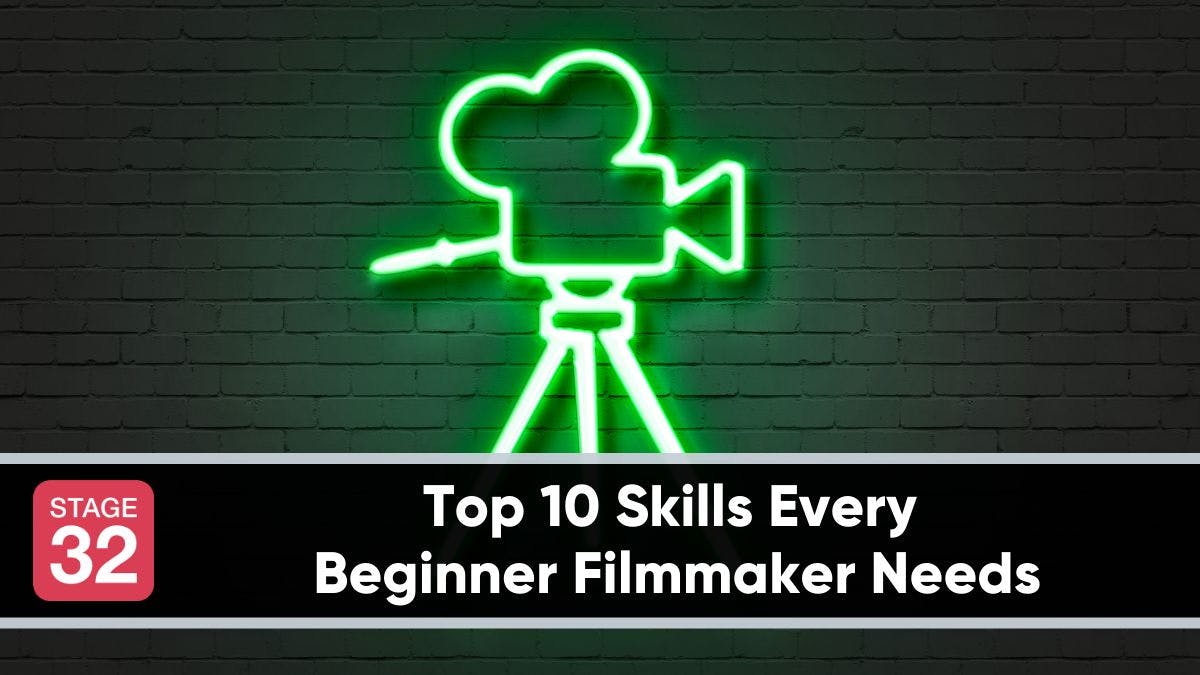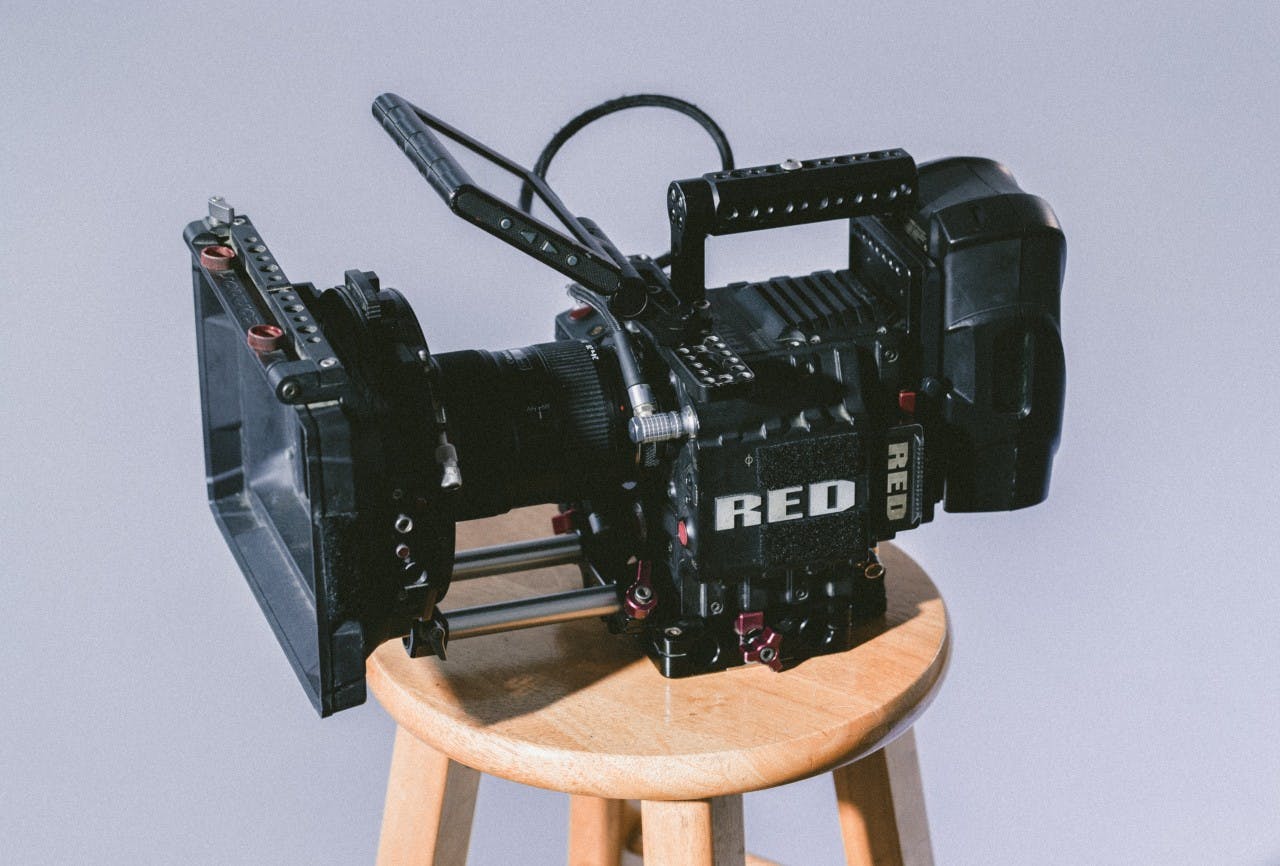Top 10 Skills Every Beginner Filmmaker Needs

Do want to shoot award-winning films and gather millions of views yearly? As a filmmaker, having some technical understanding on your resume will guarantee your prospective thriving future. I have picked up the 10 most valuable skills you should acquire to land a perfect job in the filmmaking industry. Read on to find everything out in-depth.
1. Learning Technology
No matter how banal it sounds, coming to grips with the filmmaking cornerstones is vital for your prosperous career and success. Learning technology means to understand the necessity of applying motion graphics, adding special effects, correcting color shades, and editing.
It’s really about mastering your eye for creating a top-notch piece that will be streamed worldwide and applauded by large communities. You need to know what you are making and whether this that you are making is right. In fact, you shouldn't learn more than that. It is enough to understand how framing, staging, lighting are working. All the rest will come then with continuous practice. However, just to begin, at least pay attention to this first most invaluable skill of all.

2. Sound Editing and Recording
Regardless of advanced technology with perfect inbuilt microphones recording everything, you can never be sure about audio syncing problems along the way. The sound management of recorded media usually slows down the rest of the important stages of filmmaking.
A very detailed sound mix is equally indispensable as a good picture appearing on the screen. Generally, many film creators are misguided by the idea of audio quality being a marginal movie's feature. What the majority doesn't know is that reducing background noise, adding smooth sounds, and adapting edited recordings is the keystone to the film production success.
3. Understanding Software
If you are the Jack-of-all-trades type who has his/her own focus on film production, you will know that having extensive technical experience in filming technology is imperative. Software as the main foundation, in particular. And while no one among us is born a professional film producer, we can always go up from the very bottom of the amateur ladder to master our technical expertise.
VironIT is a well-known software development company assisting film production campaigns as you might probably have or think of running. This is the place where many beginners start off building their websites and applications to introduce the target audience to the private films and animations marketplace.

4. Cinematography
The next thing in the pursuit of successful digital filmmaking you will need is the ability to utilize video equipment. Obviously, if we talk about film production, there is nothing more you have to think through more than work with digital videography.
You should definitely take up a course, master a degree, or practice, practice, and practice in order to learn the art of video techniques:
- Shooting the scenes inside and outside of a studio.
- Organizing the sequence and time of videos.
- Making necessary adjustments in the audio and pictures.
- Designing special effects
Click here to view Stage 32's catalog of Cinematography classes & webinars!
5. Mastering Screenwriting
As a filmmaker, you should definitely have a working knowledge of storytelling and screenwriting. And if you are not really experienced in screenplays, it is time to work on the skillset.
Think about a movie as a form of interaction that you develop and evoke in your viewers. Your film art is always associated with plot editing, screenwriting, interacting, and story narrating in a way that catches minds and eyes. The greatest way to achieve it is through the learning of technical functionalities of content and how to edit/ mix/ combine it.
Click here to view Stage 32's catalog of Screenwriting classes & webinars
6. Working with Technical Departments
Any qualified person from a film crew should be able to tackle issues concerning technology. Here we'd rather discuss an integral part of cinematography as lightning. You can specialize in film production or television work, however have no clue about the right color palettes across different video formats.
Try to combine your passion for shooting an episode with dramatic contrasts and juxtapositions of colors. Leverage all bright and dark outlines in the way that your movie turns into a sophisticated rainbow of matching shades. Learn how to work with lightning via Lightroom, PhotoLab, or Luminar tools.
Click here to view Stage 32's catalog of Film Production webinars and classes.
7. Multitasking
You might wonder what does multitasking have to do with technical skills. Well, by using artificial intelligence that we need almost 90% of the time during the film creation process, shifting a focus on many things seems to become very important. Your career as a film director or just cameraman will often require you to juggle many responsibilities at once. Moreover, the usage of technologies will demand even more focused attention and immediate response.
Also, switching from one task to another will be useful when we talk about film management, in general:
- Closing deals
- Evaluating screenplays or scripts
- Generating plot Ideas
- Managing film crew
- Recruiting talent

8. Shooting with Drones
Don't get cold feet about this skill. Just make sure you understand the rising demand for you as a cameraman you might potentially have.
In order to shoot the same mind-blowing panoramic views or taking bird’s eye-view shots, you should definitely learn how to manage a drone, at least. It is quite a good alternative for helicopters that are way more costly. So, just to understand what you are dealing with, you can significantly better off using drones during shooting.
Click here to view Stage 32's Drone Webinars
9. Displaying Graphics
If you really want to impress everybody with in-depth materials delivered on the screen, you should learn 4K technology. The visual aspect is probably the most imperative thing that allows you to shoot scenes underwater or with massive explosions.
Therefore, you need to combine your passion for capturing a wonderful picture with the high-quality 3D effects coupled with 4K technology. Learn the ropes of editing, mixing, recording, and adding effects to deliver perfect finished content to your viewers.

10. Managing Distribution
Whether you are working in a huge studio or in a little basement, your film's popularity can go off anytime you don't expect. The only question left is how you share and show a movie to the worldwide community.
Sometimes, you shouldn't even attempt to learn every tech skill, better devote yourself to the thing you are specialized in, and rather ask for help from some outside services. In this case, the best online distribution channel that instantly comes to mind are YouTube, Netflix, etc. Just think about how to manage this distribution right and you are done.
Click here to view Stage 32's catalog of Distribution webinars and classes.
Conclusion
To sum up, becoming a knowledgeable filmmaker means a lot. You are expected to know everything about camerawork, lighting, sound, special effects, design, and post-production processes.
However, it is impossible to learn all the technical aspects to the fullest and stop at a certain point. You step up your game and make effort every day to learn more and more. Once you develop all of those 10 top skills remember there are many other things to work on.
About the Author
Mary Byrd is a self-driven specialist who enhances her blogging skills. She is not looking for easy ways, she is always developing and looking for new ideas. Professional development is an important part of her life. Marie always improves her skills and her main goal is to inspire people.
More in Advice
Browse all5 Comments on Mary's Article
















